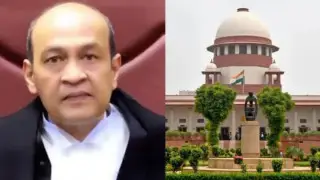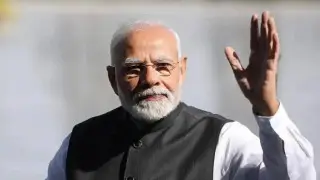
India–UK Free Trade Agreement Marks 'Historic' Shift, Opens New Doors for Trade and Startups (Image Source: ANI)
Industry leaders say the India‑UK Free Trade Agreement is a big and important step forward. I It opens up new business opportunities, allowing wider trade in goods and services between both nations.
Anant S. Iyer, Director General of the Confederation of Indian Alcoholic Beverage Companies, called the agreement “historic.” He said it will deepen economic ties across many industries. Roughly 99% of Indian export lines to the UK will now have reduced or no tariffs. This will particularly help labour-intensive sectors. He also urged the government to set a minimum import price or include anti-dumping rules. He stressed enforcing origin rules to prevent cheap imports like scotch or wine from being diverted through other countries. British whisky producers also gain significantly. Their tariffs drop from 150% to 75% immediately and fall further to 40% over ten years—making them more competitive in the Indian market.
Pankaj Chadha, Chairman of EEPC India, expects engineering exports to reach $7.5–8 billion in the next two to three years, up from $4.2 billion now. He said the deal shows India only signs win-win agreements.
Archana Jahagirdar of Rukam Capital described the agreement and the Vision 2035 plan as a game‑changer. With near‑zero tariffs and better access, the deal unlocks potential in AI, climate tech, digital trade, skills mobility, and more. She called it a major boost for start‑ups and innovation.
Ajay Sahai, CEO of FIEO, called it one of India’s biggest recent FTAs. It helps both old industries like textiles and food processing and also supports modern exports like machines, organic chemicals, and engineering products. He also noted Indian services exports to the UK are already higher than goods.
Jyoti Vij, DG of FICCI, called this agreement pathbreaking, especially for labor‑intensive sectors. She highlighted the Social Security Agreement and eased visa rules, pointing to greater business flows and job creation. More trade leads to more investment, which creates more jobs and helps the economy grow. Under the deal, India’s average tariff on UK imports drops from 15% to 3%. Both countries aim to boost trade to $120 billion by 2030. The agreement was announced by PM Modi and UK Prime Minister Keir Starmer on May 6, during PM Modi’s UK visit—marking a new step in India’s Viksit Bharat 2047 vision.













Copyright © 2025 Top Indian News
